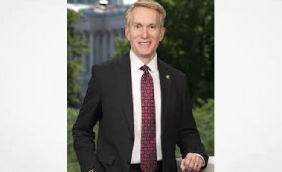In this week’s edition:
- Oregon Legislative Assembly passes bill allowing interstate transfers of cannabis, subject to certain limitations, in the event of a federal policy change.
- Congress has a number of cannabis-related amendments to consider in the appropriations bill, including the creation of a regulatory pathway for CBD’s use as a food ingredient.
- FDA issues statement noting that the statutory provisions currently prohibiting the marketing of CBD in food also allow the agency to issue a regulation creating an exception.
- Nevada law and California bill propose regulations relating to industrial hemp products, including CBD.
Federal
The House Appropriations Committee approved the 2020 Financial Services and General Government bill, which includes a cannabis banking provisionthat would prohibit financial regulators from spending money to go after financial institutions that do business with lawful cannabis companies. The spending measure would be in effect only for the next fiscal year and would not protect financial institutions from possible enforcement by the Department of Justice. The House Rules Committee will consider a number of other cannabis-related amendments to the appropriations bill next week, including proposals to prevent the DOJ from interfering in state and tribal legal cannabis programs and funding the creation of a regulatory pathway for CBD to be used as a food ingredient.
This week, the House Small Business Committee will hold a Congressional hearing on granting access to programs and support of the Small Business Administration to entrepreneurs and small businesses in states where adult-use or medical cannabis is legal. The hearing will be the first time that Congress has discussed the issue in a formal capacity.
States
Alabama Governor Kay Ivey (R) signed S.B. 236, creating a new medical cannabis commission to study medical cannabis. Medical cannabis legalization has stalled in the Alabama Legislature. The new commission will help draft proposed legislation for 2020. Alabama recently legalized hemp cultivation and has already issued more than 180 hemp cultivation licenses under its new Industrial Hemp Research Pilot Program.
Arizona enacted S.B. 1494 to create cannabis testing regulations that require Arizona dispensaries, effective November 1, 2020, to have products tested for contaminants and toxins. Arizona had been one of the only states that did not require product testing.
California inmates can possess cannabis without facing prosecution by the state, according to a recent opinion by a state Court of Appeal. However, consumption is still prohibited and possession can be punished as a rule violation by the state Department of Corrections.
Colorado has reached $1 billion in tax revenue from cannabis sales for the first time since legalizing recreational cannabis in 2014. The state taxes medical cannabis sales at 2.9 percent, while collecting a 15 percent special sales tax and a 15 percent excise tax on retail cannabis.
The Michigan Marijuana Regulatory Agency issued a public health and safety bulletin asking cultivators to refrain from using the Triple Action Neem Oil Broad Spectrum Fungicide/Insecticide, manufactured by Southern Agriculture Insecticides Inc. The product label fails to disclose the presence of three banned pesticide active ingredients. This action follows an investigation conducted by the Oregon Department of Agriculture, which issued a similar advisory in February.
A petition to legalize medical cannabis has obtained two-thirds of the required signatures to put the measure on the November 2020 ballot in Mississippi. The proposed initiatives would allow licensed physicians to recommend medical cannabis for their patients. Patients could access medical cannabis through marijuana treatment centers after registering with the Mississippi Department of Health. According to a recent poll, more than two-thirds of Mississippi residents favored legalizing medical cannabis.
Nevada Governor Steve Sisolak (D) signed A.B. 533 into law, creating a Cannabis Compliance Board and transferring the authority to license and regulate cannabis activities to the Board from the Department of Taxation. The law also establishes requirements relating to cannabis delivery; overrides the Las Vegas City Council’s recent approval of on-site consumption lounges by imposing a two-year moratorium on licensing such lounges, while the Board reviews the issue; and requires the state Department of Health and Human Services to adopt regulations relating to industrial hemp products.
Nevada enacted A.B. 132, preventing employers from refusing to hire applicants based on recreational cannabis use, unless the employment is related to public safety, funded by the federal government, or would conflict with collective bargaining agreements. The law does not prevent employers from requiring their employees to abstain from recreational cannabis use while working.
New Jersey Governor Murphy (D), who recently took steps unilaterally to grow the state’s medical cannabis program, has proposed certain revisions to the legislative measure intended to vastly expand the current cannabis program, including expanding the number of allowed cultivators to 36 from 23 in the current bill; ending a 6.625 percent sales tax within three years (instead of six); and removing language that would have allowed consumption lounges. The Health Department recently announced that it would be accepting applications for up to 108 new medical cannabis businesses.
The Oregon Legislative Assembly passed S.B. 582, authorizing the Governor to enter into agreements with other states to allow interstate shipments of cannabis. The law would become operative if and when the US Department of Justice allows or tolerates interstate transfers of cannabis. Pursuant to the legislation, interstate transfers would not be allowed in navigable airspace or via other modes of transportation subject solely to federal regulation. Nor may the transfers pass through states not subject to the contemplated interstate agreements. The legislation is aimed at giving Oregon a head start on exporting its current oversupply of cannabis.
Virginia Attorney General Mark Herring has called for legalizing cannabis, starting with decriminalizing possession. Herring, a Democrat, hopes his public support for legalization will encourage relevant legislation. Past efforts to decriminalize cannabis possession in the state have failed in the Republican-controlled General Assembly.
CBD
The US Food and Drug Administration has published a statement reiterating its commitment to sound, science-based policy on CBD, while also taking steps to consider if there are appropriate regulatory pathways for the lawful marketing of cannabidiol outside of the drug setting. Acknowledging the substantial public interest in marketing and accessing CBD in food and dietary supplements, the FDA’s statement explains that the statutory provisions that currently prohibit marketing CBD in food also allow the agency to issue a regulation creating an exception. The statement also notes certain safety risks that arose during the Epidiolex application, including the potential for liver injury, and its concern that consumers would not seek important medical care. The statement also contains a summary of significant takeaways from agency’s first public hearing on the safety and efficacy of products containing cannabis or cannabis-derived compounds, and key open questions regarding the contours of appropriate regulatory oversight of CBD.
The US Postal Service released a new policy on mailing hemp-derived CBD products, confirming that it is legal to mail hemp products if the products were lawfully produced, distributed and sold. Mailers are not required to present documentation at the time of mailing, but are required to retain records for at least two years establishing compliance with applicable federal, state and local laws.
A.B. 228, a bill that would authorize CBD sales, has been unanimously approved by the Health Committee of the California State Senate. The bill would also permit entities licensed to engage in commercial cannabis sales to manufacture, distribute and sell products that contain industrial hemp. If the bill clears the Senate, Governor Gavin Newsom (D) is expected to sign it, and the law would go into effect immediately.
Massachusetts released a “Frequently Asked Questions” document about CBD in food, stating that CBD may not be added to manufactured foods since CBD is not an approved food ingredient under federal law.
Texas Governor Greg Abbott (R) signed HB 1325 into law allowing the farming and the production of low-THC hemp and CBD products in Texas. The law creates a federally-approved program with procedures for crop sampling, inspection and testing. The law also legalizes CBD products with up to 0.3 percent THC so long as labeling and quality standards are met.
Harvest Health & Recreation announced that it signed an agreement with the Asian American Trade Associations Council (AATAC) to provide its CBD products to more than 10,000 convenience stores and gas stations. The AATAC is one of the largest trade associations for independent convenience stores and gas stations, with approximately 50,000 members representing nearly 90,000 locations across the United States, including stores branded as Chevron, Shell, ARCO, BP, Sunoco, and 76.
Kroger Company will begin selling CBD-infused lotions, balms, and oils at locations in 17 states. The products will also be available for purchase online through Ship.Kroger.com and Vitacost.com.
International
Costa Rica’s Legislative Assembly is considering a bill, Cannabis and Hemp Production Law for Medicinal and Industrial Purposes, which sets forth an industrialization structure and authorizes exports, including THC and CBD extracts.
The deputy director of China’s National Narcotics Control Commission has stated that cannabis legalization in North America has led to a spike in the amount of cannabis products smuggled into China, describing it as a “new threat to China.” Liu Yuejin conceded that the number of cannabis users in China—about 24,000—is miniscule relative to the total population, but noted that the number of users has reportedly grown by more than 25 percent in the past year alone.
Business
Hemp Industry Daily hosted its first ever all-hemp conference in New Orleans last week. Dentons attorneys attended the conference. Three major concerns among those at the event were: (1) continued regulatory uncertainty; (2) potential oversupply of hemp and undersupply of hemp processors; and (3) continuing access-to-banking issues. Several speakers also noted that all cannabis industry observers (not just hemp industry actors) should be paying attention to the USDA’s rulemaking process for hemp, as any future federal regulation of cannabis is likely to be influenced by the rules and regulations being made for hemp now. We are happy to answer any questions you may have about the conference.
Columbia Care Inc. has launched the nation’s first cannabis industry credit card. The Columbia National Credit program, or “CNC Card,” is currently available in New York, Delaware and Pennsylvania, and the company plans to extend the CNC Card to Illinois and Arizona later this month, with expansion to all Columbia Care locations in the 15 jurisdictions where it is licensed by 2020.
California-based Harborside Inc., which operates cultivation facilities and dispensaries in California and Oregon, has gone public, listing on the Canadian Securities Exchange. Harborside joins 170 cannabis firms trading on the CSE. The company reported $38 million in sales from its Bay Area dispensaries last year alone, according to the public filing.
J.P. Morgan is one of five vendors who submitted bids to provide banking services in connection with West Virginia’s medical cannabis program. State Attorney General Patrick Morrisey produced an advisory opinion on the program, finding no evidence of any federal enforcement actions taken against the industry and that several “safe harbors” exist for businesses operating legally under the state’s laws.
A representative of the American Trucking Association testified in a congressional hearing about how cannabis legalization has made it harder to hire drug-free drivers. The trucking industry is facing a driver shortage. House Transportation Chairman Peter A. DeFazio acknowledged the importance of preventing intoxicated drivers, but voiced concerns about the ethics of disqualifying potential drivers from employment because they use cannabis recreationally when not working.
The issuance of bonds backed by cannabis taxes are not likely to emerge soon due to existing legal uncertainties surrounding cannabis at the federal level. Financial institutions are hesitant to hold bond deposits relating to cannabis or hemp production, thus preventing such financing mechanisms as first-time farmer bonds (“aggie bonds”) and manufacturing facility bonds.
Regent Pacific plans to establish Asia’s first e-commerce platform focusing on CBD-infused products. Regent Pacific is closing in on a $15 million all-stock takeover of Hong Kong-based e-commerce platform Yooya. While Yooya currently does not sell any CBD products, Regent plans to start selling CBD through Yooya within 90 days of closing.
The Church of England has lifted its self-imposed ban on investing in medical cannabis. However, under its new policy, companies that generate more than 10 percent of revenues from recreational sales will remain off-limits.
Medicine/Health
Oregon State University has launched the nation’s largest hemp research center. OSU will be the only university in the nation that certifies hemp seed. Oregon has licensed over 1,300 growers to plant over 46,000 acres of hemp this year.
A recent study which re-evaluated the association between medical cannabis and reduced opioid overdose mortality, concluded that claims that “enacting medical cannabis laws will reduce opioid overdose death should be met with skepticism.” The study found that the findings from the original 2014 study did not hold over a longer period and that the association between state medical cannabis laws and opioid overdose mortality reversed direction—from negative 21 percent to positive 23 percent—and the association remained positive after accounting for recreational cannabis laws.
A phytochemical analysis found that cannabis was used in rituals in western China at least 2,500 years ago and that the cannabis plants produced high levels of psychoactive compounds.
A multi-site observational study of non-fatally injured drivers has found “no increase in crash risk, after adjustment for age, sex and use of other impairing substances, in drivers with THC less than 5ng/mL.” The authors concluded that the findings “suggest that the impact of cannabis on road safety is relatively small at present time.”
Previous Editions
- Cannabis Group Weekly Alert – June 2019 #2
- Cannabis Group Weekly Alert – June 2019
- Cannabis Group Weekly Alert – May 2019 #4
Source JD Supra https://www.jdsupra.com/legalnews/cannabis-group-weekly-alert-june-2019-3-32823/















